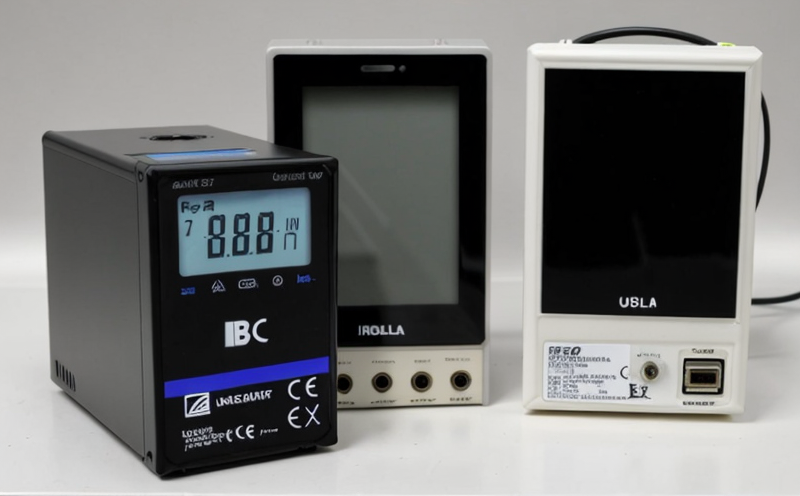BS EN 61960 Consumer Electronics Lithium Cell Testing
The BS EN 61960 standard is a critical specification that ensures the safety and performance of lithium cells used in consumer electronics. This standard covers various aspects, including design, construction, marking, and labeling of these cells to ensure they meet strict quality and safety requirements.
Compliance with this standard is mandatory for manufacturers who wish to sell their products within the European Economic Area (EEA). Failure to comply can result in product recalls, legal penalties, and damage to brand reputation. The testing procedures outlined in BS EN 61960 are designed to identify potential hazards such as overcharging, short circuits, mechanical abuse, and thermal runaway.
To begin the process of testing lithium cells according to this standard, manufacturers must ensure that their products undergo rigorous laboratory analysis using state-of-the-art equipment. Our team at [Lab Name] can provide a comprehensive service that includes:
- Initial Consultation: Discuss the specific needs and requirements of your product.
- Sample Preparation: Ensure samples are prepared according to standard procedures.
- Testing: Utilize advanced equipment to conduct all necessary tests as per BS EN 61960.
- Data Analysis: Provide detailed reports based on test results.
The testing process involves multiple stages, each designed to identify specific risks associated with lithium cells. These stages include:
- Electrical Testing: This includes resistance measurement, capacity assessment, and cycle life evaluation.
- Thermal Testing: Simulates real-world conditions to observe how the cells behave under various temperature ranges.
- Mechanical Stress Tests: Assesses the durability of the cells by subjecting them to physical stresses such as impact and vibration.
- Overcharge Protection Testing: Ensures that the cells have proper protection mechanisms against overcharging scenarios.
The results from these tests are crucial for ensuring product safety and reliability. Our laboratory follows international standards such as ISO 12405-3:2017, which provides guidelines on testing procedures for lithium-ion batteries used in portable electronic devices.
Our team of highly qualified professionals is dedicated to providing accurate and reliable test results that can be used by you or your regulatory authorities. We understand the importance of meeting deadlines while maintaining high standards of accuracy. Our services are tailored to meet individual client needs, ensuring that we deliver the best possible outcome.
By choosing our laboratory for BS EN 61960 compliance testing, you can rest assured that your products will be thoroughly evaluated and tested according to the latest regulatory requirements. This not only helps in avoiding legal issues but also enhances consumer confidence by ensuring safety standards are met.
In conclusion, adhering to the BS EN 61960 standard is essential for any manufacturer producing lithium cells intended for use in consumer electronics within the European Union or other regions adopting this standard. By partnering with us, you gain access to expert knowledge and cutting-edge technology necessary for successful compliance.
Benefits
Complying with BS EN 61960 offers several advantages beyond just meeting legal requirements. Here are some key benefits:
- Enhanced Safety: By ensuring your products meet stringent safety standards, you reduce the risk of accidents and injuries.
- Better Product Quality: Rigorous testing helps identify flaws early in the development process, leading to higher quality end products.
- Increased Consumer Trust: Demonstrating compliance with recognized international standards builds trust among consumers and enhances brand reputation.
- Avoidance of Legal Penalties: Non-compliance can lead to costly fines and product recalls; avoiding these issues saves money and time.
- Market Access: Meeting the requirements opens up new markets where this standard is enforced, expanding your business opportunities globally.
- Competitive Edge: Showing leadership in safety and quality can set your company apart from competitors, attracting more customers.
Industry Applications
The BS EN 61960 standard has wide-ranging applications across various sectors. Some of the primary areas include:
- Mobile Phones and Tablets: Ensures that these devices are safe for end-users during daily use.
- Notebooks and Laptops: Provides assurance about the reliability of laptop batteries in demanding environments.
- Smartwatches: Guarantees that smartwatches meet stringent safety criteria, especially important given their small form factor and close proximity to skin.
- Cameras and Accessories: Covers the testing needs of cameras and accessories like tripods, ensuring they function correctly with lithium batteries.
Competitive Advantage and Market Impact
Maintaining compliance with BS EN 61960 can significantly enhance your company's competitiveness in the global market. Here’s why:
- Differentiation: Meeting this standard sets you apart from competitors who may not have followed all necessary procedures.
- Innovation: The testing process encourages continuous improvement, pushing boundaries of safety and performance.
- Customer Satisfaction: Products that meet high standards are more likely to satisfy customer expectations consistently.
- Cost Efficiency: Early detection of issues through thorough testing can prevent costly rework or product recalls later on.





